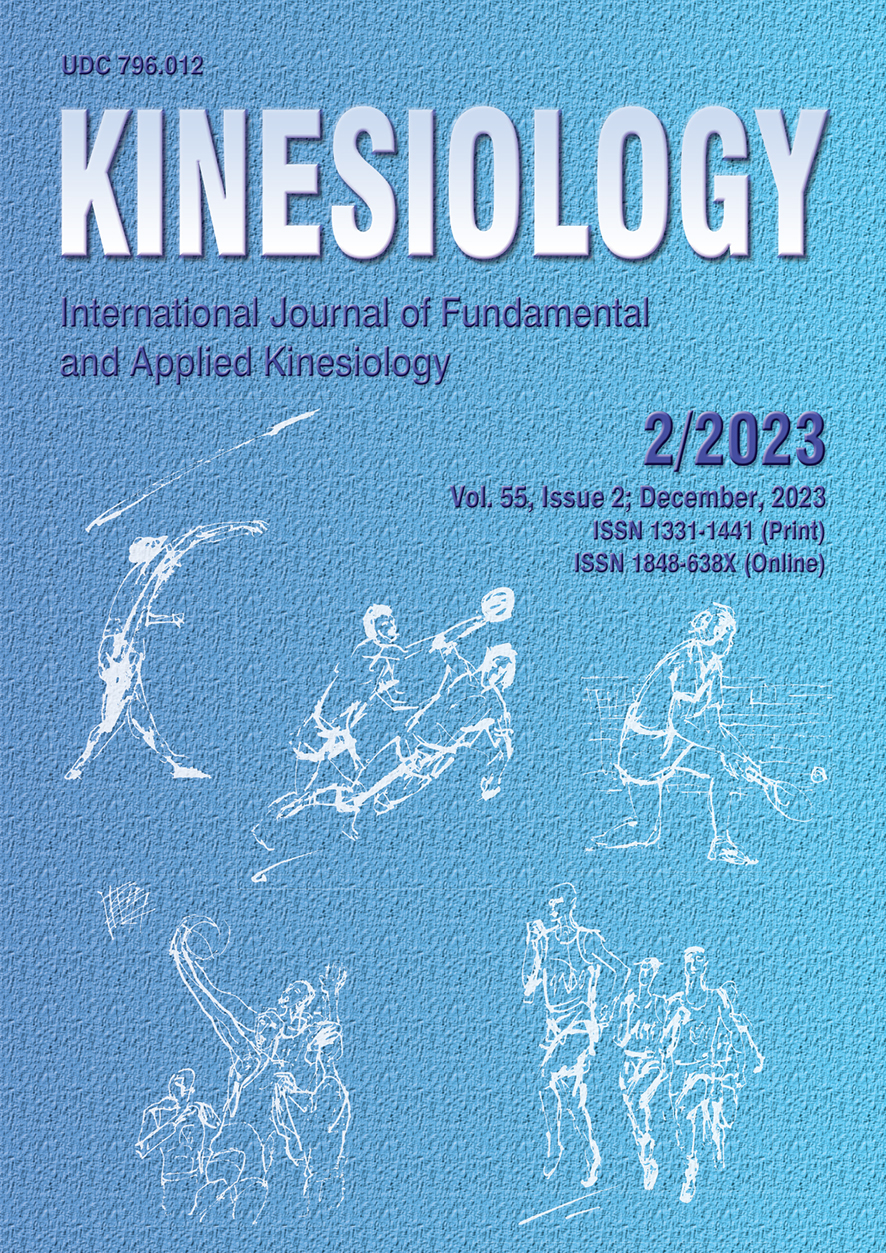VALIDITY AND RELIABILITY OF THE DAILY ACTIVITY BEHAVIOURS QUESTIONNAIRE (DABQ) FOR THE ASSESSMENT OF 24-H MOVEMENT BEHAVIOURS AMONG ADOLESCENTS
Abstract
Measurement of the time spent in sleep, sedentary behaviour, and physical activity across the full 24-h day (i.e. 24-h movement behaviours) is essential for time-use research among adolescents. However, self-reported questionnaires for the assessment of 24-h movement behaviours are scarce. The aim of this study was to examine the validity and reliability of recently developed Daily Activity Behaviours Questionnaire (DABQ) for the assessment of time spent in sleep, sedentary behaviour, light physical activity, and moderate-to-vigorous physical activity among adolescents. A convenience sample of 59 high-school students (34 female, age range: 15–18 years) was recruited. Participants were asked to complete a web-based DABQ at two occasions (two-weeks apart) to examine test-retest reliability of the DABQ, and to wear activPAL accelerometer to examine convergent validity of the DABQ. The test-retest reliability correlation coefficients (ICC) for the durations of sleep, sedentary behaviour, light physical activity, and moderate-to-vigorous physical activity were 0.49, 0.64, 0.51, and 0.66, respectively. Convergent validity correlation coefficients (Spearman’s ρ) were 0.51, 0.38, 0.25, and 0.53, respectively. Our findings are comparable with the reliability and validity of most existing sleep, sedentary behaviour, or physical activity questionnaires among adolescents. However, DABQ is one of the first validated questionnaires that resonates with the emerging 24-h movement paradigm. The observed reliability and validity are indicating satisfactory measurement properties of the DABQ to be used in time-use research among adolescents.
Keywords: time-use questionnaire, time-use composition, physical behaviours, time-use epidemiology
Downloads
Published
How to Cite
Issue
Section
License

This work is licensed under a Creative Commons Attribution-NonCommercial 4.0 International License.
At Faculty of Kinesiology we recognize that access to quality research is vital to the scientific community and beyond. Kinesiology is non-profit journal and all costs of publishing and peer review process are covered by the publisher itself or other funding sources like Ministry of Science and Education of the Republic of Croatia. Full text papers are also available free of charge at http://hrcak.srce.hr/kineziologija. There are no restrictions on self archiving of any form of paper (preprint, postprint and publisher's version).
Articles are distributed under the terms of the CC BY - NC 4.0
Kinesiology does not charge any fees to authors to submit or publish articles in our journal.


